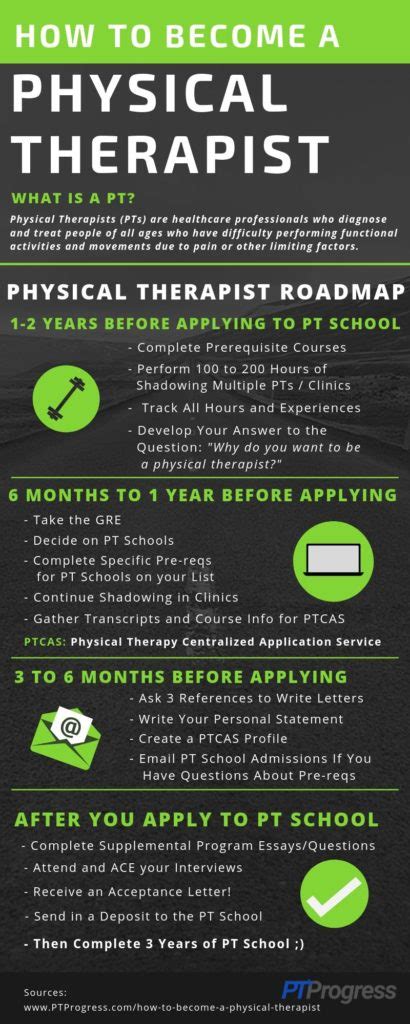Aspiring physical therapists often wonder what undergraduate major is the best preparation for their future careers. While there is no single “right” answer, certain majors provide a stronger foundation for success in physical therapy school and beyond.

Pre-Physical Therapy Requirements
Before enrolling in a physical therapy program, students must complete specific prerequisite courses. These requirements vary slightly from program to program, but generally include:
- General Biology (2-3 semesters)
- Human Anatomy (2 semesters)
- Physiology (2 semesters)
- Chemistry (2 semesters)
- Physics (1-2 semesters)
- Math (1-2 semesters)
- Psychology (1-2 semesters)
- Statistics (1-2 semesters)
Students should check with the physical therapy programs they are interested in to determine the exact prerequisite requirements.
Best Undergraduate Majors for Physical Therapy
While any major can provide a foundation for physical therapy school, certain majors offer advantages in terms of coursework and skills. Here are the most common and recommended undergraduate majors for those pursuing physical therapy:
- Exercise Science: This major provides a comprehensive understanding of the human body, movement, and exercise physiology. Students gain hands-on experience in anatomy, biomechanics, and kinesiology, which are essential for physical therapists.
- Kinesiology: Similar to Exercise Science, Kinesiology focuses on human movement, anatomy, and biomechanics. However, it also delves into the social and psychological aspects of physical activity, providing a more holistic understanding of human function.
- Biology: A strong foundation in biology is crucial for physical therapy students, as it provides a detailed understanding of the human body, its systems, and its response to injury and disease.
- Neuroscience: The nervous system plays a vital role in physical function, coordination, and recovery. Neuroscience majors study the structure and function of the nervous system, providing valuable insights for physical therapists working with patients with neurological conditions.
- Health Sciences: This interdisciplinary major covers a wide range of topics in health care, including biology, anatomy, physiology, psychology, and public health. It provides a broad foundation for students interested in a career in health care, including physical therapy.
Considerations for Choosing a Major
When choosing an undergraduate major for physical therapy, consider the following factors:
- Coursework: Ensure the major covers the prerequisite courses required by the physical therapy programs you are interested in.
- Faculty: Seek out professors with expertise in physical therapy or related fields who can provide mentorship and guidance.
- Research Opportunities: Consider universities with opportunities for undergraduate research in physical therapy or related disciplines.
- Clinical Experience: Look for programs that offer opportunities for clinical observation or volunteer experiences in physical therapy settings.
- Professional Development: Attend conferences, join professional organizations, and seek out opportunities to network with physical therapists.
Common Mistakes to Avoid
- Not taking prerequisite courses seriously: Neglecting prerequisite coursework can jeopardize your chances of admission to physical therapy school.
- Majoring in a subject you are not passionate about: Physical therapy is a demanding and rewarding profession, so choose a major that you find interesting and engaging.
- Waiting too long to start planning: Begin researching physical therapy programs and majors early in your undergraduate career to ensure you have ample time to prepare.
- Not getting enough clinical experience: Hands-on experience in physical therapy settings is invaluable, so seek out as many opportunities as possible.
- Underestimating the importance of communication skills: Physical therapists must be able to communicate effectively with patients, colleagues, and other healthcare professionals.
Tips and Tricks
- Shadow physical therapists: Observe them in various settings to gain insights into the profession.
- Volunteer in physical therapy clinics: Assist with patient care and gain hands-on experience.
- Join pre-physical therapy clubs and organizations: Connect with other students and professionals in the field.
- Be proactive: Seek out opportunities to learn and grow in areas related to physical therapy.
- Stay informed: Keep abreast of current trends and research in the field.
Conclusion
Choosing the right major for physical therapy is an important step in preparing for a rewarding career as a physical therapist. By selecting a major that aligns with your interests, provides a strong foundation in the required coursework, and offers clinical experiences, you can increase your chances of success in physical therapy school and beyond.
